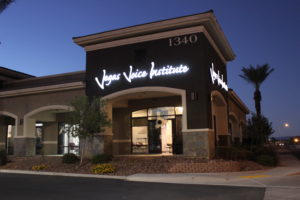The month of May is Better Speech and Hearing Month. This is a month that speech pathologists have dedicated to spreading information and enlightening communities about people who struggle with speech disorders. It is about advocating for those who can’t advocate for themselves; teaching about speech disorders that otherwise may never be known about or understood.
Speech pathologists serve a large variety of disorders. We won’t go into depth of all of the speech disorders, but let’s talk about one cause for speech disorders that is often misunderstood; strokes.
A stroke, otherwise known as a Cerebrovascular Accident (CVA), is a loss of blood flow to the brain, whether it be a blockage or a rupture in an artery. The lack of oxygen causes brain tissue to die. A stroke can cause aphasia, dysarthria, memory loss, and even swallowing problems.
Aphasia is the loss of language following a stroke or some other neurological event. It can cause the person to have difficulty finding words or the person may be able to speak, but what they are saying may not always make sense. The part of the brain that understands and uses language is often affected after a stroke. This means that people often keep their intelligence but are unable to express it.
Dysarthria is muscle weakness in the speech muscles. Speech can sound slurred or spastic when someone suffers from dysarthria. His/her volume may be much lower or uncontrolled, or the voice may sound hoarse or strained. The speech does not reflect the person’s intelligence.
Swallowing problems from a stroke occur in more than 50% of survivors but luckily it usually resolves within 7-10 days. After that, 11-13% of patients continue to suffer from dysphagia (swallowing problems). Swallowing problems can make it difficult to chew and/or swallow your food. It can cause you to choke or cough on food or water. Swallowing problems can lead to aspiration pneumonia, which can make you a frequent visitor to the hospital.
Finally, memory loss occurs in stroke patients but more often in older patients. Symptoms can include confusion, wandering or getting lost in familiar places, difficulty following directions, and/or trouble with money. When we know someone has had a stroke, keep an eye out for these symptoms, to ensure his/her safety.
If your family member or loved one, or even a friend suffers from any of these symptoms, tell them about speech therapy. In speech therapy we can help improve work on and improve these symptoms. Speech therapy and rehabilitation has been shown to improve memory loss as well as the ability to communicate and speak. If you have swallowing problems, tell your doctor that you are coughing and/or choking while eating or that food gets caught in your throat.
If you have any questions about speech therapy, please feel free to call or email Vegas Voice Institute at 702-558-9900 or email: vegasvoice3@lvcoxmail.com.




